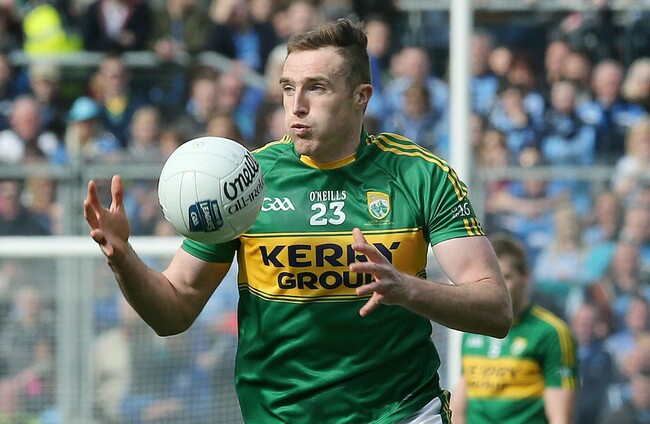IT’S BEEN ANOTHER bad week for American Exceptionalism. That’s the quaint idea that America is special and superior to other nations and therefore has a mission to transform the world for the better.
By pulling out of the Paris Accord on climate change, it seems America now has a mission to transform the world into a stinking, toxic dump. Its superiority as a nation is also up for debate: where once there was the Gettysburg Address, now there is ‘covfefe’.
There’s nothing exceptional about Exceptionalism; the British Empire believed in it too, except their particular mission involved traipsing around the world teaching godless savages how to play cricket and wear neckties, and then stealing all their stuff.
At least the Americans aimed high.
Irish Exceptionalism basically involves a vague sense of being dead sound. That idea that an Irish person in any global situation will be the social glue, propping up the bar, telling bawdy jokes, giving a blast of a song. This explains the popularity of Irish pubs, where a socially awkward world rushes into our gregarious, sweaty embrace.
Our Exceptionalism comes from the fact that we are a small, gossipy, remarkably socially interconnected country, where the degrees of separation are few – “Sure how could he be a serial killer, didn’t I sell a cow to his father?” – and it surfaces whenever the subject turns to doping in Irish sport.
As the details of his case come trickling out, it appears that Brendan O’Sullivan has been guilty of nothing more than an honest mistake. He failed to properly navigate his way through the treacherous world of nutritional supplements and, by the strict liability principle of anti-doping, paid the price with 21 weeks of his Kerry career.
O’Sullivan will prove a cautionary tale for GAA players and sportspeople in general about the importance of education on supplement use. Dr Sharon Madigan of the Institute of Sport told Off The Ball this week that up to 20% of legal supplements can be contaminated by substances on the banned list due to their proximity in manufacturing production lines.
But this being an Irish doping story, we also got a slew of well-meaning character witnesses in O’Sullivan’s defence. We heard from Tomas Ó Sé how the player was a “stand-up guy,”, and from Marc Ó Sé that he was “a good guy,” and “an honest to God young fella,” as if those facts were relevant.
Others, like former players Dick Clerkin and Michael Quirke questioned whether GAA players should be subjected to the same rigours of drug testing as professional and Olympic athletes, given that they were amateurs practising a hobby for no financial gain; and still others from inside the sport were wearied by the whole thing, as we already know that there’s no problem and all this drug talk is dragging the good name of players through the mud.
The myth of Irish Exceptionalism says that we can’t be dopers, because we’re sound lads altogether. We all know each other, we’re down to earth, “honest to God”, and would never bring the shame on the family.
Remember that nice Michelle Smith? How appalled we were at the questioning of this wonderful, sweet, red-haired Irish girl by those nasty Americans and our muckraking press? Wasn’t she from a good family in south Dublin? Sure Jimmy Magee swears by her!
Once bitten, twice shy. We’re well capable. Hell, we even dope horses, and last summer in Michael O’Reilly we had the honour of giving the Rio Olympics its first positive test. Sport Ireland published a survey as part of their 2016 Anti-Doping report which said that 90% of athletes regarded doping was “cheating” and “morally wrong”.
What about the other 10%?!
We want to believe, because they are amateur players woven into the fabric of our society and not sequestered away in sinister foreign training camps, that GAA players couldn’t dope.
But imagine if the current anti-doping regime was relaxed. With the atmosphere around inter-county GAA teams becoming ever more rarified, is it really that difficult to imagine a time when a culture of doping took hold because, as was the case in cycling, it was easy to get away with it and impossible to succeed without it?
Or to imagine that the steroid culture rife in Irish gyms – where, let’s face it, many GAA players must spend more and more time – would seep into panels here and there?
Couldn’t the same ‘omerta’ develop as surrounds the issue of payments to managers, which is also illegal – financial doping, if you will – but is tolerated and persists precisely because it can’t be policed?
And in this scenario, can you imagine GAA players being subject to the type of nudge-and-wink cynicism that athletes from traditionally more drug-infested sports endure?
This last point is key. It’s about the good name of the whole being preserved at the expense of the unlucky or unscrupulous few. Sport Ireland only tested 97 GAA players in 2016, compared to 250 track and field athletes, which, given the greater numbers playing top level Gaelic games, seems preposterous.
If anything, scrutiny and testing of GAA players should be increased, because as things stand they remain one of the few genuinely special things about Ireland, the ability to lilt a bar of a song aside – an Irish Exceptionalism worth protecting, even if it is a pain in the ass.



